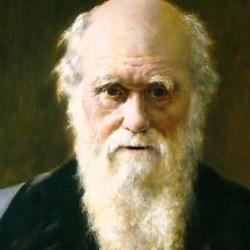Tim Flannery’s NYRB review of Paul Falkowski’s Life’s Engines and Peter Ward and Joe Kirschvink’s A New History of Life sums up the authors’ points: “our cells are comprised of a series of highly sophisticated ‘little engines’ or nanomachines that carry out life’s vital functions.”
These microscopic machines all work together harmoniously: “Falkowski points out that we also consist of trillions of electrochemical machines that somehow coordinate their intricate activities in ways that allow our bodies and minds to function with the required reliability and precision.”
Ribosomes are one example of such biological machinery: “All ribosomes—whether in the most humble bacteria or in human bodies—operate at the same rate, adding just ten to twenty amino acids per second to the growing protein string. And so are our bodies built up by tiny mechanistic operations, one protein at a time, until that stupendous entity we call a human being is complete. All living things possess ribosomes, so these complex micromachines must have existed in the common ancestor of all life. Perhaps their development marks the spark of life itself.”
This bleeds out into a virtual cosmology: “Microbes control the Earth, Falkowski tells us. They created it in its present form, and maintain it in its current state by creating a global electron marketplace that we call the biosphere. Falkowski argues that we can conceive of our world as a great, unitary electrical device, driven by the myriad tiny electric motors and the other electrochemical nanomachinery of cells. Viewing the world this way reveals hitherto unappreciated dangers in some modern science.”
Two things stand out in Flannery’s review. The first is the frequent recourse that he and the books’ authors have to the language of mystery and “magic.” He says that “The way that the sophisticated nanomachines Falkowski describes became incorporated into a single complex cell, such as those our bodies consist of, is so incredible that it reads like a fairy tale.”
Part of the wonder arises from the fact that, in the evolutionary framework that all these authors operate in, these magical devices appeared astonishingly early in the progress of evolution: “How,” Flannery comments, “such mind-bending complexity could have evolved at such an early stage, and in such a hostile environment, has forced a fundamental reconsideration of the origins of life itself.”
No doubt.














